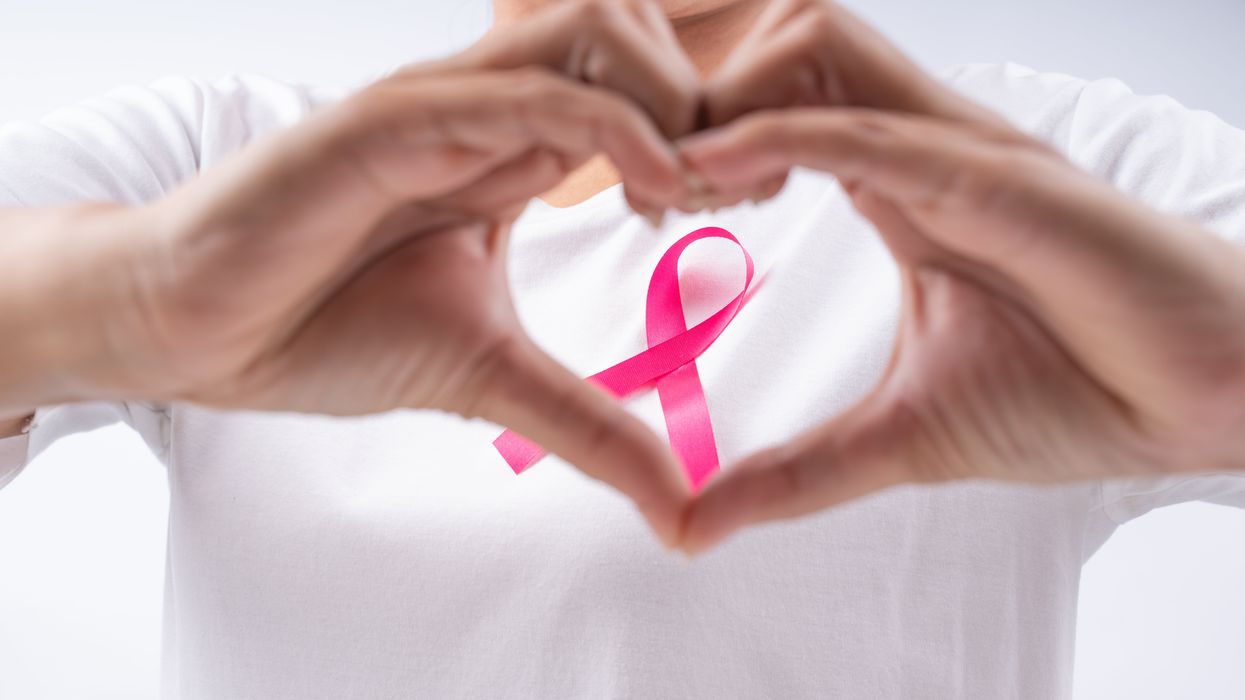Johnson is a United Methodist pastor, the author of "Holding Up Your Corner: Talking About Race in Your Community" and program director for the Bridge Alliance, which houses The Fulcrum.
It is rare to find issues that bridge partisan lines and unite Americans across the ideological spectrum. Breast Cancer Awareness Month stands as a powerful exception.
Observed annually in October, BCAM has evolved from grassroots beginnings into a global movement, reshaping our understanding of breast cancer and, in the process, demonstrating the potential for collective action to address a shared health crisis. Almost every American citizen knows someone experiencing some form of cancer, particularly breast cancer. The BCAM model, I purport, offers valuable lessons in how to participate in our nation's social contract more faithfully in polarizing times.
The seeds of BCAM were planted in the early 20th century, with a few pioneering women speaking publicly about their breast cancer diagnoses. However, it wasn't until the 1980s that breast cancer awareness began to gain mainstream momentum. This shift was fueled by the courage of high-profile women like Betty Ford and Nancy Reagan, who shared their battles with the disease, helping to shatter the stigma surrounding breast cancer.
The turning point came in 1985, when the American Cancer Society and Imperial Chemical Industries (now part of AstraZeneca) launched the first Breast Cancer Awareness Month. The initial goals were modest: educate women about the importance of breast cancer screening and early detection. However, the movement quickly took on a life of its own, with the iconic pink ribbon becoming a universal symbol of solidarity and hope.
BCAM has surged in growth and impact for nearly 40 years, becoming a powerful global movement. Thousands of events, ranging from charity runs and walks to fundraising galas and auctions, occur each October, mobilizing communities and raising vital funds. Since its inception, BCAM has been instrumental in generating hundreds of millions of dollars in research funding. This influx of support has fueled groundbreaking discoveries, improving detection methods and treatment options and significantly boosting survival rates.
Interestingly, BCAM's importance extends beyond the medical arena. The movement has been a catalyst for a profound cultural shift, helping to dismantle the stigma and silence that once surrounded breast cancer. By fostering greater openness, empathy and understanding, BCAM has empowered survivors to share their stories and ensured that those affected by the disease feel seen and supported. Many social advocates and spiritual innovators believe these encouraging signs transfer into practices and results.
BCAM's true superpower lies in its ability to transcend the traditional boundaries that often divide us effortlessly. It doesn't matter if you identify as conservative or progressive. When we all come together, donning pink, it becomes a powerful expression of solidarity with everyone fighting the good fight against breast cancer. BCAM's influence extends beyond raising awareness; it bridges cultural and geographic divides, reminding us of a significant and profoundly shared concern: the health and well-being of our fellow human beings. In a world where differences often dominate the headlines, BCAM shines as a unifying force, highlighting our common humanity and the importance of compassion and support in the face of adversity.
The BCAM model offers a roadmap for building bridges and finding common ground. By focusing on something shared — a commonly acute health crisis — instead of a myriad of partisan differences, BCAM is an open invitation that rallies around a common purpose. All that is required is empathy, the willingness to see the humanity in others and the otherness that often mislabels our fellow humans. Also, the curating of open, honest dialogue and interplay spaces where diverse yet similar experiences are welcomed and valued.
The BCAM movement has shown that even the most daunting challenges can be overcome when we come together. It has mobilized millions of people worldwide, transforming the way we think about, diagnose and treat breast cancer. It stands as a testament to the power of collective action, demonstrating that, through unity and determination, we can reshape the world around us. From funding groundbreaking research to supporting those affected by the disease, the impact of BCAM is immeasurable.
This October, join in recognition of BCAM, teaming up with thousands of others committed to building a society with greater empathy, understanding and cooperation around a shared hope. Together, we can educate communities, advance medical breakthroughs and save countless lives. Ultimately, it is only by living in this expression of the social contract more faithfully that we can create a more just, compassionate, united and cancer-free world.




















Trump & Hegseth gave Mark Kelly a huge 2028 gift